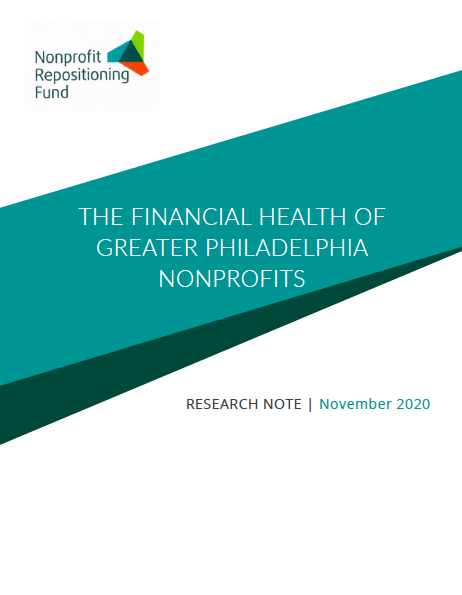By Nadya K. Shmavonian & Russell Johnson
In 2015, Philanthropy Network and the Philadelphia Foundation incubated The Greater Philadelphia Nonprofit Repositioning Fund, an initiative that is now housed within SeaChange Capital Partners. In the ensuing five+ years since our inception, we have made over 71 grants or small awards totaling over $1.5 million to support nonprofits pursuing sustained collaborations. These collaborations include shared back office arrangements, programmatic joint ventures, as well as more complex mergers and acquisitions.
We are pleased to count 10 funders as our supporters as we move into our next three years of activity – these funders are, if you will, walking the talk of collaboration. As we look ahead to the time when we can put COVID-19 into our rear-view mirror (we hope!), it is all the more evident that collaboration will be a vital strategy for both nonprofits and funders to consider if the nonprofit sector is to continue to provide essential services and stimulate innovation that advances social purpose.
|
Read the Nonprofit Repositioning Fund report for further analysis of the financial health of Greater Philadelphia-area nonprofits and strategies for resilience.
|
The Fund recently released a new report – The Financial Health of Greater Philadelphia Nonprofits. The study was launched with support from three of our funders: HealthSpark Foundation, the Scattergood Foundation, and the United Way of Greater Philadelphia and Southern New Jersey. BCT Consulting conducted the analysis and updated a 2017 Philadelphia Foundation report on the financial health of area nonprofits. The good news? There were some positive trend lines reported in the IRS 990 data for the interceding four years between 2014 – 2018. The bad news? The pre-COVID-19 data show an 8 percent decrease in net income from 2014 to 2018, despite what we know to have been a period of significant economic growth. Also bucking broader economic indicators, the aggregate share of nonprofits facing into insolvency (with liabilities greater than assets) remained fixed from 2014 to 2018 at 8 percent – and even more troubling, the percentage of all health and human services organizations that are insolvent also remained constant at 13 percent. This insolvency rate is a compelling call to address the broken public/private funding partnership that even today fails to equitably support those most in need. The short-term prospect of fixing this problem is bleak given public revenue shortfalls. An answer for some is strategic repositioning.
While COVID-19 has already altered the landscape for our region’s nonprofits significantly, there are additional external factors that are changing fundamental ways in which organizations operate. Nonprofits are re-examining their internal cultures, hiring practices, leadership and programs with a heightened priority on ensuring racial equity. They are also building awareness of the changing demographics of their clients and assessing how best to operate equitably in a more diverse community. This is challenging and expensive work. It has profound implications for the ‘repositioning’ that may be required of nonprofits in the coming months and years as they identify strategies to survive, while being guided by values of social justice and equity. To do this, and to do this well, requires “out of the box thinking” and financial resources. Further elevating the importance of addressing racial and socioeconomic inequities, health disparities continue to undercut clinical health outcomes and social well-being.
Although it will be on a delayed timeframe, the reports of human lives lost will likely be mirrored in the coming months and years by reports of tragically high numbers of nonprofits that downsize or close, or merely cease to exist in the midst and aftermath of COVID-19. Business failures are casting thousands into unemployment and personal savings are becoming depleted as families scramble to survive in uncertain times. Traditional programs and services often don’t work as backlogs and inefficient systems continue to compound.
This anticipated rise in nonprofit morbidity and mortality rates associated with the COVID-19 pandemic will not receive media attention commensurate with that of individual lives lost, nor likely with the coverage that will be afforded large corporations that are similarly imperiled. Nonetheless, the disappearance of many nonprofits from the landscape will be sorely felt by individuals relying upon their services, whether they be social, educational, cultural, or spiritual in nature. And it will, again, likely be some of the nation’s most disenfranchised people who will bear the brunt of these organizational failures, thereby perpetuating the injustices of social, economic, and racial inequity.
These data provide a useful pre-COVID-19 baseline for the fiscal health of Philadelphia-area nonprofits that represent nearly 25 percent of the region’s economy. The funders of the study plan to return to these data on at least an annual – if not semi-annual – basis through the balance of this crisis. And when they become available, we do not expect the COVID-era financials will tell a happy story. Because of their cooperation in establishing the Nonprofit Repositioning Fund, our funders have symbolically elevated and legitimized the consideration of sustained collaborations by nonprofits in our five-county region. Looking ahead, the region’s funders can show greater strength and leverage if they work together aggressively to ensure that the social sector can weather this storm and emerge with resilience that can reach all of our community equitably.
Nadya K. Shmavonian is Director, Greater Philadelphia Nonprofit Repositioning Fund, and Partner, SeaChange Capital Partners; Russell Johnson is President & CEO, HealthSpark Foundation, and Past Chair, Greater Philadelphia Nonprofit Repositioning Fund




